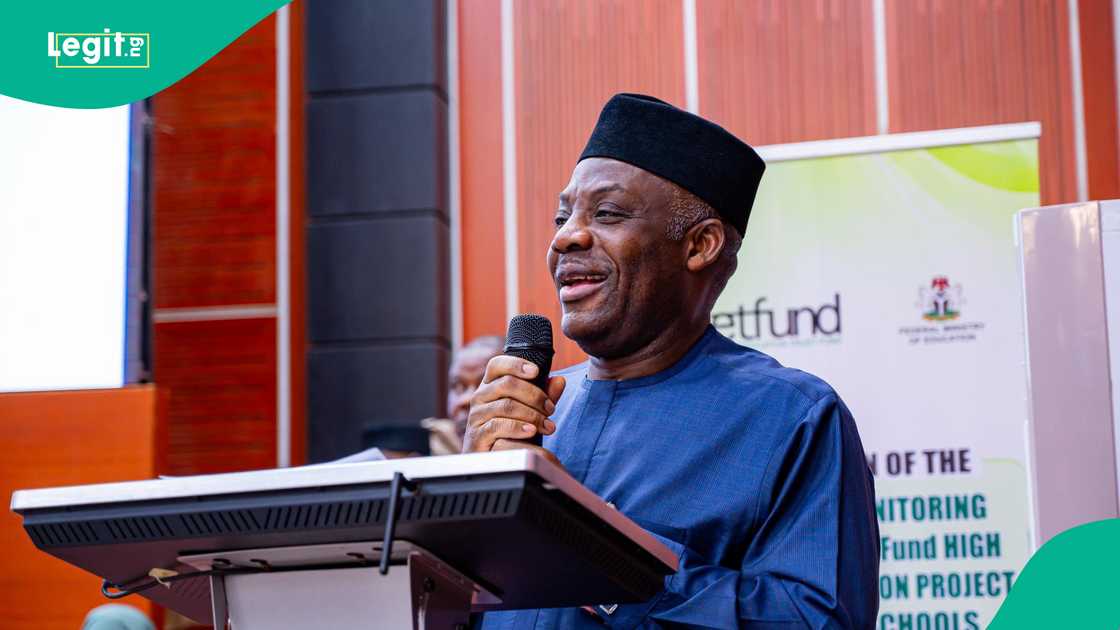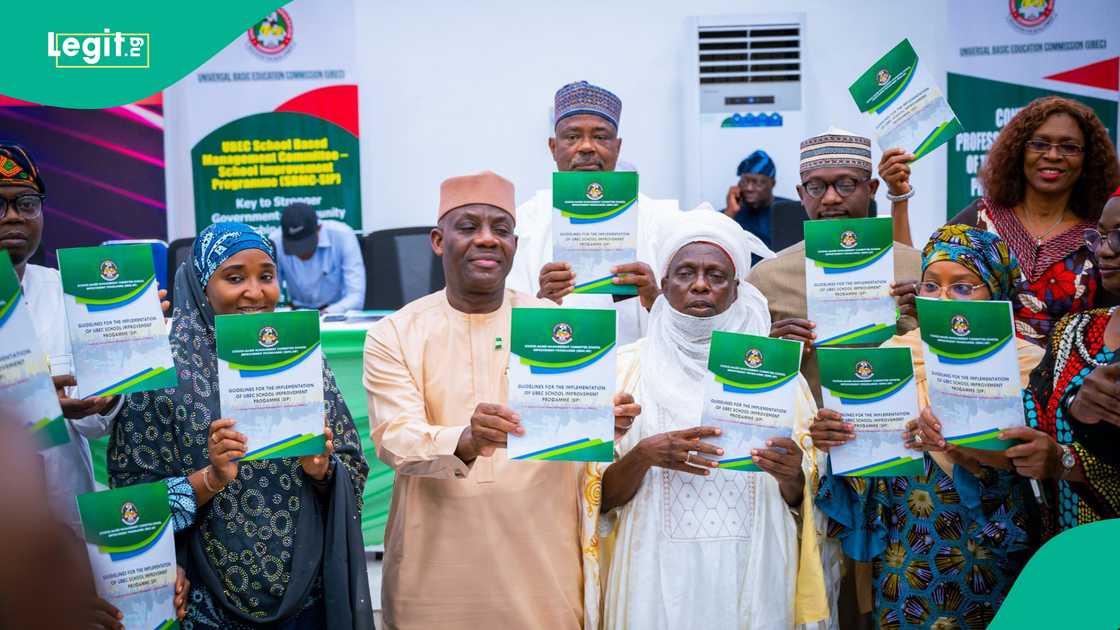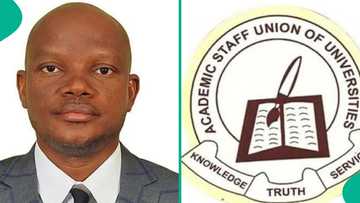Analyst Rates Education Minister’s Performance, Lists Achievements
- Political analyst Oluwafemi Popoola has rated education minister Dr. Tunji Alausa as one of the top performers in President Tinubu’s cabinet
- Popoola highlighted Alausa’s efforts in improving basic education, implementing renewable energy in universities, scrapping overseas scholarship programmes, etc
- The analyst also commended the minister’s push to rehabilitate medical schools and his commitment to results-driven, people-focused leadership
Abuja, FCT - Oluwafemi Popoola, a political analyst and journalist, has rated the minister of education, Dr. Tunji Alausa, as one of the standout performers in President Bola Tinubu’s cabinet, citing a series of reforms and initiatives introduced since his redeployment to the ministry in October 2024.
According to Popoola, Alausa has demonstrated a “results-driven and reform-minded” approach to policy implementation, focusing on issues ranging from basic education to university infrastructure, renewable energy, and student welfare.

Source: Twitter
Alausa pushing states to access education funds - Popoola
Popoola noted that Dr. Alausa is working to address longstanding issues in Nigeria’s basic education sector.

Read also
2027 election: Ex-EFCC boss Bawa accused of working with Third Force to target Tinubu's ministers
"Take what is happening in the states regarding basic education. The parlous state of basic education in the country, seeing how primary school pupils learn sitting on the floor, sometimes under the shade outside with no roofs over their heads," he wrote.
He said several state governments have failed to access the Universal Basic Education Fund (UBEF), which contains hundreds of billions of naira intended for the development of primary and junior secondary education.
According to him, Alausa is now engaging state authorities with data-backed recommendations to facilitate access to the fund and improve learning outcomes.
Renewable energy for tertiary institutions
On Wednesday, May 7, Alausa signed a Memorandum of Understanding (MoU) with the Rural Electrification Agency (REA) under the Energising Education Programme (EEP). Popoola hailed the agreement, which will reportedly deliver off-grid power solutions to Nigerian tertiary institutions using mini-grid systems ranging from 1.1 to 12.5 megawatts.
The analyst listed universities such as the University of Lagos (UNILAG), Obafemi Awolowo University (OAU), University of Nigeria, Nsukka (UNN), Ahmadu Bello University (ABU), University of Benin (UniBen), and University of Ibadan (UI) as early beneficiaries under Phase IV of the programme.
Alausa's scholarship reforms commended
Alausa has also scrapped the Bilateral Education Agreement (BEA) Scholarship Programme, which historically funded the education of Nigerian students abroad. According to Popoola, the minister justified the move by stating that all relevant academic programmes are now available in Nigerian institutions, many of which offer comparable or better quality.
The decision, while controversial, was described by Popoola as “pragmatic,” aimed at retaining talent within the country and reducing reliance on foreign education systems.
Anti-bullying policy introduced nationwide
The education minister recently launched Nigeria’s first-ever National Anti-Bullying Policy to address violence and harassment in schools. Popoola recalled the high-profile case of Sylvester Oromoni, a student who died in 2021 following alleged bullying at Dowen College in Lagos, as a driving force behind the policy.
He explained that the initiative is intended to create safe learning environments and includes provisions for community involvement, teacher training, and awareness campaigns.
Upgrading medical schools across Nigeria
Popoola also highlighted Alausa’s efforts to rehabilitate 18 medical schools across Nigeria’s six geopolitical zones through the TETFund High Impact Intervention Project. According to him, the goal is to address a reported deficit of over 300,000 doctors in the country and improve the standard of medical training.
“These upgrades are not just about infrastructure,” Popoola stated, “but about producing world-class healthcare professionals domestically.”
He noted that all of Alausa’s reforms fall under the Nigerian Education Sector-Wide Renewal Initiative (NESRI). This national framework focuses on STEMM (Science, Technology, Engineering, Mathematics, and Medical Sciences), teacher development, digital learning, and infrastructure improvements.

Source: Twitter
Popoola noted that while much of Nigeria’s political space is mired in uncertainty and performance gaps, the education ministry under Alausa offers a “rare example of intentional governance.”
He praised the minister’s leadership style as “low ego, high output” and commended his commitment to human capital development.
Minister reverses 18-year admission age benchmark
Legit.ng earlier reported that Alausa, shortly after becoming education minister, reversed the 18-year admission benchmark into tertiary institutions in Nigeria. He also hinted at the possibility of reviewing Nigeria’s education policy.
The minister, however, said there would be no reversal on the federal government’s decision to void over 22,700 degree certificates obtained in some “fake” universities in neighbouring Togo and the Benin Republic.
Source: Legit.ng





